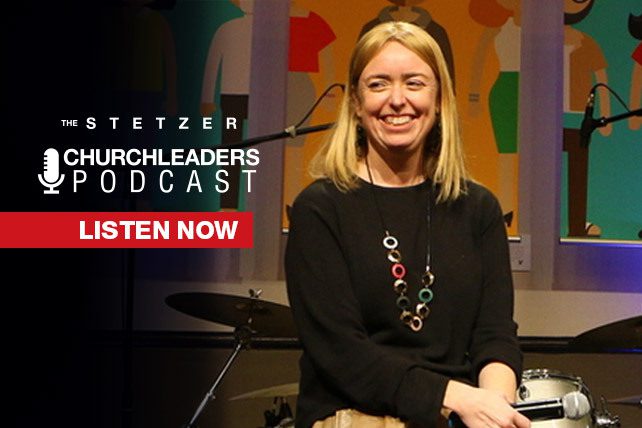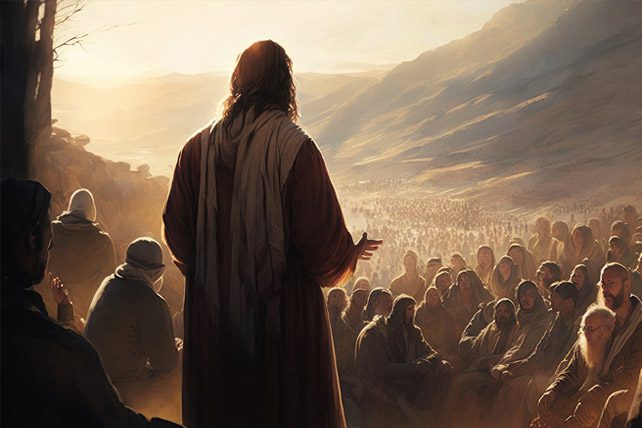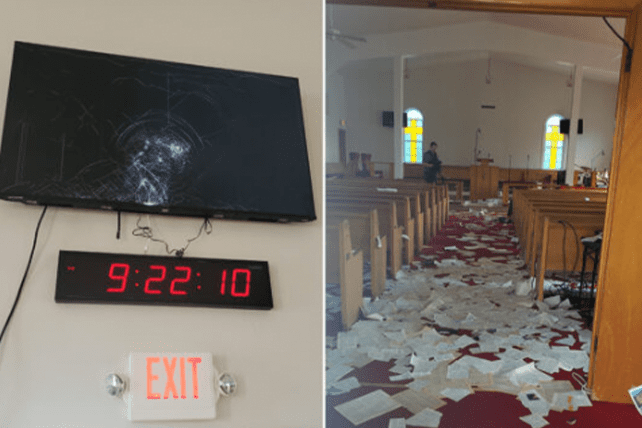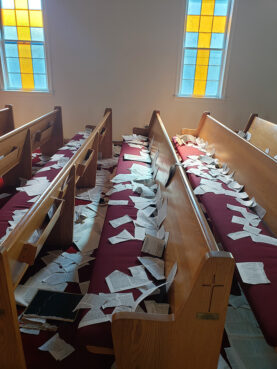Bishop T.D. Jakes has installed Touré Roberts and Sarah Jakes Roberts as assistant pastors at The Potter’s House Church in Dallas, Texas, a first in the church’s 27-year history. The daughter and son-in-law of Bishop Jakes, Touré and Sarah stepped into their new roles during a special anniversary service at the church on Sunday, July 2.
The couple also co-pastors two branches of The Potter’s House Church, one in Los Angeles and another in Denver. Although the Denver church took its weekend services completely online in 2022 following a drop in giving, the congregation still operates a local food bank and offers community groups.
Last year, Bishop Jakes appointed Sarah to be his successor in leading his women’s empowerment ministry.
Also during the service, the church’s chief operation officer, Frank Dyer, was promoted to executive pastor; church elder Oscar Williams was promoted to dean of worship arts at Jakes Divinity School; and associate pastor Joel Tudman was promoted to the church’s corporate leadership team.
Speaking to those who were being appointed to new roles, Jakes said, “You might be surprised to be here, but God is not.”
RELATED: Sarah Jakes Roberts: 5 Messages of Hope and Strength for Teens
“What truly sets you apart is not where you went to school or what you wear or what you know or what you think or what you heard. But what sets you apart for service is the anointing of the Holy Spirit,” Jakes later said.
Dressed in all white in contrast to the others on stage, who were wearing all black attire, Sarah and Touré knelt alongside the other ministers being consecrated. Amid cheers from the congregation, Jakes said, “We have never had an assistant pastor at this church, but together, you can. You absolutely can.”
Addressing all those being consecrated, Jakes said, “To all of you, I charge you, minister of the word and sacrament, brother or sister in Christ, you have been called of God. You have been called by God, through the leading voice of this congregation, to be its minister.”
RELATED: T.D. Jakes Announces 10-Year Partnership With Wells Fargo To Build Mixed-Income Communities
“You have been called to help lead these people in the way of Jesus Christ. Within the common ministry of all of us, you have been set apart for special service, each one unique in its own way, to equip the body of Christ for its ministry of reconciliation in the world,” Jakes continued. “As you embark on this chapter of your life and your ministry, I charge you: Remember always that Jesus came not to be served, but to serve. I charge you to seek to live with the joy and confidence that comes from being rooted in the gospel and in knowing the giftedness of life.”


































